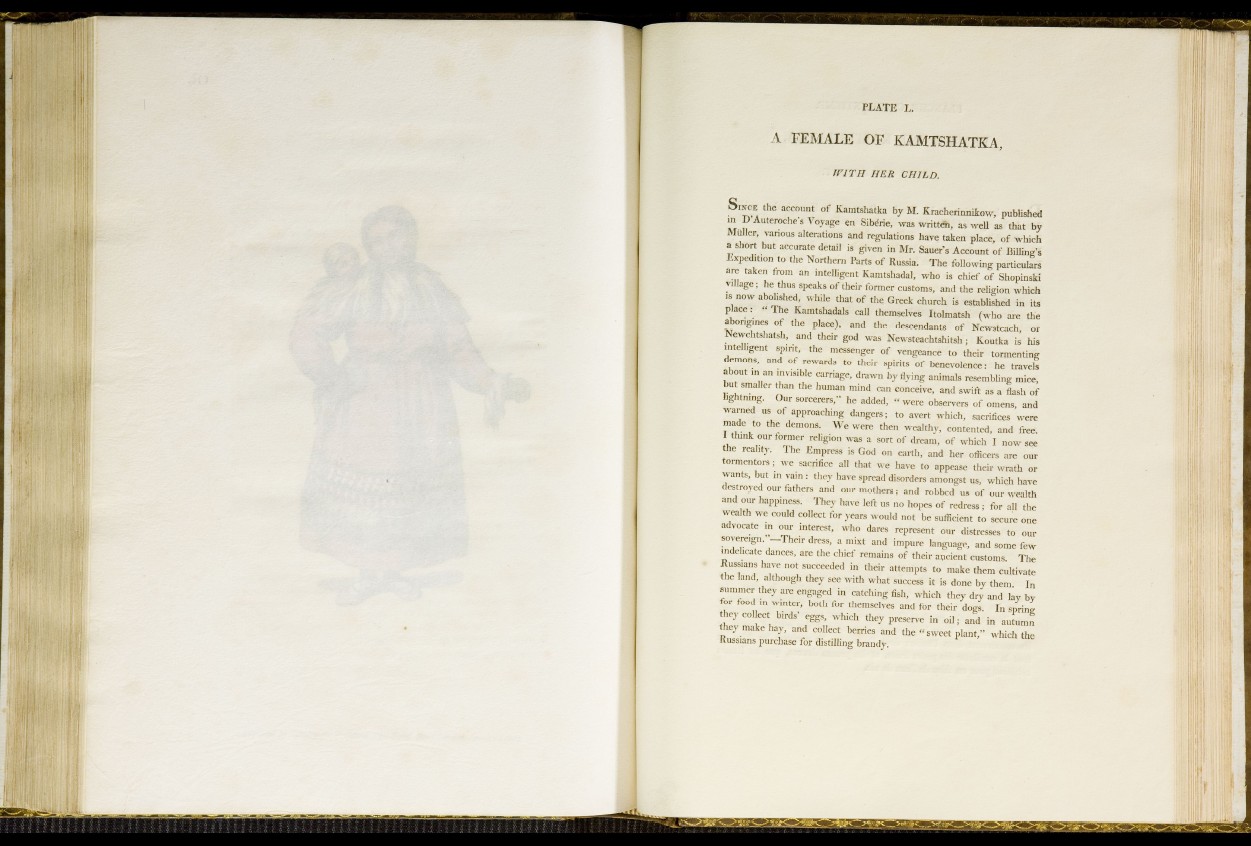
A FEMALE OF KAMTSHATKA,
IFITH HER CHILD.
i
SrNCE the acco.mt of Kamtsliatka by M. Kracherinniiow, pubUshed
in DAuteroche's Voyage en Sibérie, was written, as weU as that by
Muller, various alterations and regulations have taken place, of which
a short but accurate detail is given in Mr. Sauer's Account of Billing's
Expedition to the Northern Parts of Russia. The foUowing particulL
are taken from an intelligent Kamtshadal, who is chief of Shopinski
village; he thus speaks of their former customs, and the religion which
IS now abolished, while that of the Greek church is established in its
place : " The Kamtshadals call themselves Itolmatsh (who are the
abongmes of the place), and the descendants of Newsteach, or
Newchtshatsh, and their god was Newsteachtshitsh ; Koutka is his
intelligent spirit, the messenger of vengeance to their tormenting
demons, and ot rewards to their spirits of benevolence: he travels
about in an invisible carriage, drawn by flying animals resembling mice,
but smaller than the human mind can conceive, and swift as a flash of
lightning. Our sorcerers,- he added, "were observers of omens, and
warned us of approaching dangers; to avert which, sacrifices were
made to the demons. We were then wealthy, contented, and free.
1 think our former religion was a sort of dream, of which I now see
the real.t3^ The Empress is God on earth, and her oflicers are our
tormentors ; sacrifice all that we have to appease their wrath or
wants, but in vam : they have spread disorders amongst us, which have
destroyed our fathers and our mothers; and robbed us of our wealth
and our happiness. They have left us no hopes of redress ; for all the
wealth we coidd collect for j ears would not be suflicient to secure one
advocate .n our interest, who dares represent our distresses to our
sovereign. - 1 hen-dress, a mixt and impure language, and some few
mdehcate dances, are the chief remains of their aqcient customs. The
Russians have not succeeded in their attempts to make them cultivate
the land, although they see with what success it is done by them In
summer they are engaged in catching fish, which they dry and lay by
or food m winter, both for themselves and for their dogs. In spring
hey eol ect birds' eggs, which they preserve in oil; and in a uLf
they make hay, and collect berries and the "sweet plant," which the
Russians purchase for distilling brandy.
ï . •J'\
't • V ••